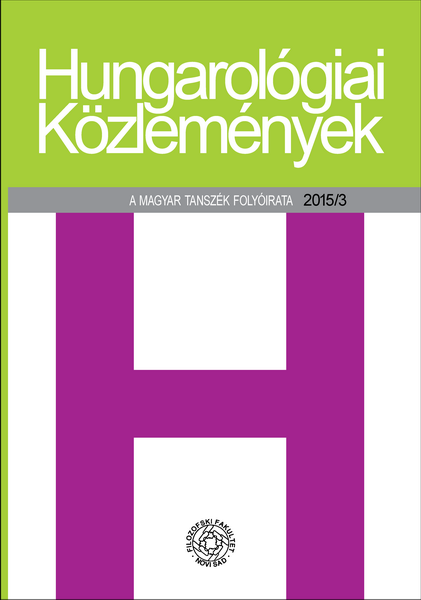A közvetett beszédaktusok
Indirect Speech Acts
Author(s): Irén LánczSubject(s): Pragmatics, Finno-Ugrian studies
Published by: Филозофски факултет, Универзитет у Новом Саду
Keywords: indirect speech act; illucotional meaning; recognizing the intention; interference; metaphor
Summary/Abstract: In everyday communications we often hear utterances which are not meant to be understood literally because what the speaker intends to say is different from the actual meaning of the sentence uttered. The classical theory of indirect speach acts was developed by J. Searle. According to his theory the speaker when uttering an indirect speach act can understand the sentence the way he says it, but can mean something else as well. The intended meaning can be detected through the complicated process of deduction, taking into consideration background knowledge. P. Grice shows indirect speech acts including them into the frame of the theory of interference. He also considers the intention of the speaker to be important, and introduces two concepts to the understanding of the phenomenon: the principles of implicature and of cooperation. There are significant differences between the views of the two scholars. The theory of relevance does not draw a sharp deviding line between literal/ direct and indirect meaning. Building upon / Following up on Grice’s theory, Sperber and Wilson differentiate between two kinds of intentions: the informative and the communicative intention. Their assumption is that in the process of interpretation analysis related / connected to the code is supplemented by deductive processes which enable / make possible full interpretation. These processes are however characteristic not only of language. Non literal / indirect meaning is the basis of metaphors and irony as well, and fiction can also be related to it.
Journal: Hungarológiai Közlemények
- Issue Year: 16/2015
- Issue No: 3
- Page Range: 100-113
- Page Count: 14
- Language: Hungarian

